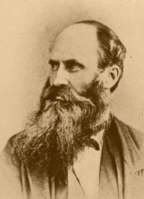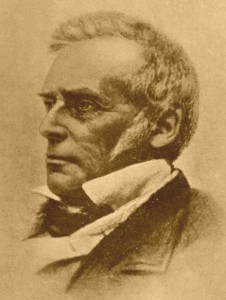
Im vorigen Blogeintrag habe ich gezeigt, dass John Nelson Darby im Gegensatz zu den meisten heutigen „bibeltreuen“ Christen offenbar nicht davon ausging, dass der Gott des Islam ein anderer ist als der Gott der Christen. Ähnliche Aussagen lassen sich auch in den Schriften anderer „Brüder“ des 19. und frühen 20. Jahrhunderts finden. So schrieb beispielsweise Hamilton Smith (1862–1943):
What a world lies under the eye of a holy God! Heathendom without the knowledge of God: Mohammedanism with a perverted knowledge of God: Christendom forsaking God: and the mass of true Christians backsliding from God.1
Im Gegensatz zu den Heiden, die Gott überhaupt nicht kennen, haben die Muslime nach Smith also eine „verzerrte Kenntnis“ Gottes – womit im Kontext nur der wahre Gott gemeint sein kann. Dass sie einen völlig anderen Gott verehren, wird mit keinem Wort angedeutet.

Hugh Henry Snell (1817–1892) unterscheidet ebenfalls konsequent zwischen Muslimen und Götzendienern, zählt Erstere also offenbar nicht zu Letzteren:
There is another form of spurious Christianity equally unclean which also has many admirers. It cries up loudly the value of the Scriptures. Bible knowledge is inculcated. The precious volume is largely distributed. Christianity, as a system which is opposed to Judaism, Mohammedanism, and idolatry, is openly contended for.2
By a Christian I mean a person who is „in Christ;“ not a mere nominal professor of Christianity as contrasted with a Mohammedan, an idolater, or a Jew; but a sinner who has received the Lord Jesus Christ, whom God sent, as his Saviour.3
Robert Beacon, von dem 1883 in The Bible Treasury ein Artikel über Götzendienst erschien, wendet das Wort idolatry bzw. idolatrous im Gegensatz zu Snell zwar auch auf den Islam an, aber es wird schnell deutlich, dass er dessen Götzendienst nicht in der Verehrung eines anderen Gottes, sondern in der Verehrung Mohammeds sieht:
There are two other forms of infidelity; but these stand apart by themselves. Delusions both infidel and idolatrous, viz., Mohammedanism and Mormonism. Infidel, for each arose in countries where Christianity had been preached, and where the truth was wholly or partially denied. Idolatrous, for each exalted a man and gave him the homage due only to Christ. But Mahomet and J. Smith stole largely from the Bible, as appears from their respective books, the Koran, and the book of Mormon. […] Mohammedanism had its birth in Arabia. Paul had been there (Gal. i. 17). Before the close of the sixth century idolatry again prevailed, as the Epistle to the Galatians warned of the danger, and charged its principle on such as after the cross went back to ritualism. Mahomet appears, his wife is his first convert, and she converts her cousin who was a professed christian. Thus infidelity and apostacy are stamped upon it at the first appearance. At that moment there were only three, and one an apostate! Mahomet professed to extirpate idolatry, but he only changed its character. The rally cry of his followers was “God is great and Mahomet is His prophet.” Their infidelity consists in denying, not the being of God, but the person and work of the Son, and, we may add, in supplanting the abiding presence of the Spirit by the fabulous mission of the warrior vicar of God. Most of the countries now called Mohammedanism were once Christian.4
In der letzten hervorgehobenen Passage stellt Beacon sogar ausdrücklich fest, dass die Muslime die Existenz Gottes (und damit meint er offensichtlich den wahren Gott) nicht leugnen, sondern „nur“ die Person und das Werk des Sohnes; daher kann er auch den „Schlachtruf“ der Muslime mit „Gott ist groß“ (anstatt, wie heute in christlichen Kreisen üblich, mit „Allah ist groß“) wiedergeben.
PS: Aus alledem folgt natürlich nicht, dass die „Brüder“ den Islam als gleichwertigen Weg zum Heil angesehen hätten; sie lassen im Gegenteil keinen Zweifel daran, dass sie ihn in Ursprung und Wesen für antichristlich, ja satanisch hielten (vgl. z.B. die scharfe Islamkritik in Walter Scotts Kommentar zu Offenbarung 9).
